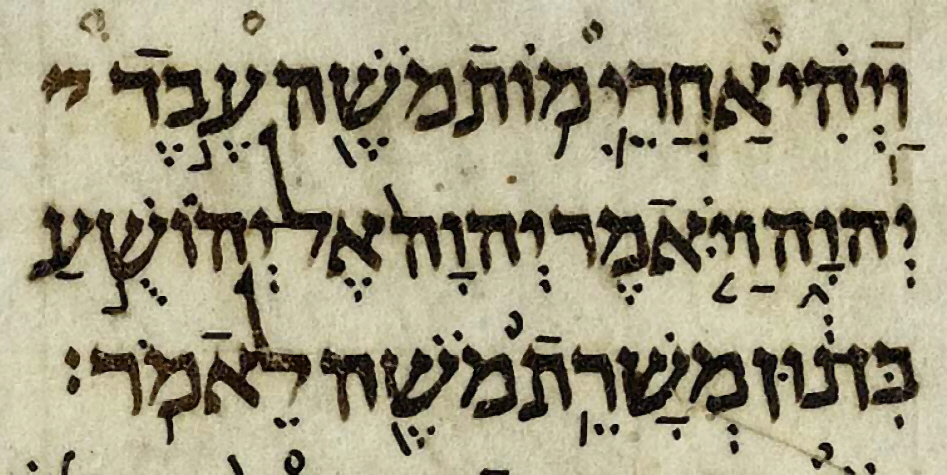Commentary on Parashat Pinchas, Numbers 25:10-30:1
God said to Moses, “The priest Pinchas turned My anger away from the sons of Israel by bringing My rights to bear in their midst. Therefore, I shall give to him My covenants of Peace and everlasting priesthood.”
After the death of the idolatrous Israelites, God told Moses to take a count of the entire community of the sons of Israel from 20 years old and upward, according to their father’s houses. Each of the families was counted and numbered as God commanded.
After the people were counted, God told Moses, “The land shall be apportioned as an inheritance according to the number of names. To the numerous, you shall give a large inheritance, and to the few, a small inheritance. By lot this land shall be divided and it shall be received as a possession according to the names of the tribes of the fathers.”
Now during this counting and apportionment of land, the five daughters of Zelophehad, came near and placed themselves before Moses and Eleazar the priest and the entire community in the entrance of the Tent of Appointed Meeting. They said, “Our father died in the wilderness. He was not among the company that banded together against God. He was not among Korah‘s allies, but he died because of his own sin, and he had no sons. Why should the name of our father disappear from the midst of his family, just because he did not have a son? Please give us a possession too.”

Help us keep Jewish knowledge accessible to millions of people around the world.
Your donation to My Jewish Learning fuels endless journeys of Jewish discovery. With your help, My Jewish Learning can continue to provide nonstop opportunities for learning, connection and growth.
Moses brought their legitimate claim before God. And God responded, “The daughters of Zelophehad speak justly. Certainly you shall give them, according to the legal right of males, a hereditary possession, and you shall cause their father’s inheritance to pass to them. And to the sons of Israel, you shall say: if a man dies and he has no son, you shall cause his inheritance to pass to his daughter. If he has no daughter, you shall give his inheritance to his brothers. If he has no brothers, you shall give his inheritance to his kin that is closest to him from among his family. This shall remain for Israel as a legal norm.”
God then said to Moses, “Go to the Mountain of Transitions and look at the land that I have given to the sons of Israel. And when you have seen it, you too shall be gathered to your people as your brother Aaron was gathered. For you acted against My words in the wilderness of Tzin.”
Moses responded, “Let God appoint a man over the community who will lead them so that the community of God should not be like sheep who have no shepherd.”
God said to Moses, “Take Joshua, son of Nun, a man to whom there is spirit, lean your hand upon him and present him to Eleazar the priest and to the entire community, and charge him before their eyes. You will thus place some of your prestige upon him so that the entire community and the sons of Israel will obey him.” Moses did with Joshua as God commanded.
God spoke to Moses and commanded him to have the sons of Israel bring offerings to God in each season of appointed meeting. Fire offerings, homage offerings and ascent offerings are noted for each of the festivals, including Passover, the Sabbath, the New Moon, the Festival of Weeks, and the Day of Atonement. Each offering, whether of animal sacrifice, flour, incense, libations or human rest, is made to express compliance to God. Moses explained these exact offerings to the Children of Israel according to everything that God had commanded Moses.
Parshat Pinchas Discussion Questions:
1) The daughters of Zelophehad are given rights to their deceased father’s land. Describe how important this ruling is for women then and now.
2) Moses, knowing it was his time to die, asked God to appoint a leader for the Israelites. Is there one leader of the Jewish people today? If so, who? If not, why? Would it be helpful to have one leader for the entire Jewish people today?
3) Why do you think God chose Joshua, son of Nun, to follow in Moses footsteps as leader of the Israelites? Name some qualities of leadership and loyalty Joshua has shown thus far in the Torah. Which of these qualities do you share with Joshua?
4) Name some Jewish leaders in your community. How did they become leaders? How do you think they are doing as leaders of your Jewish community?
Reprinted with permission from Jewish Family & Life!



